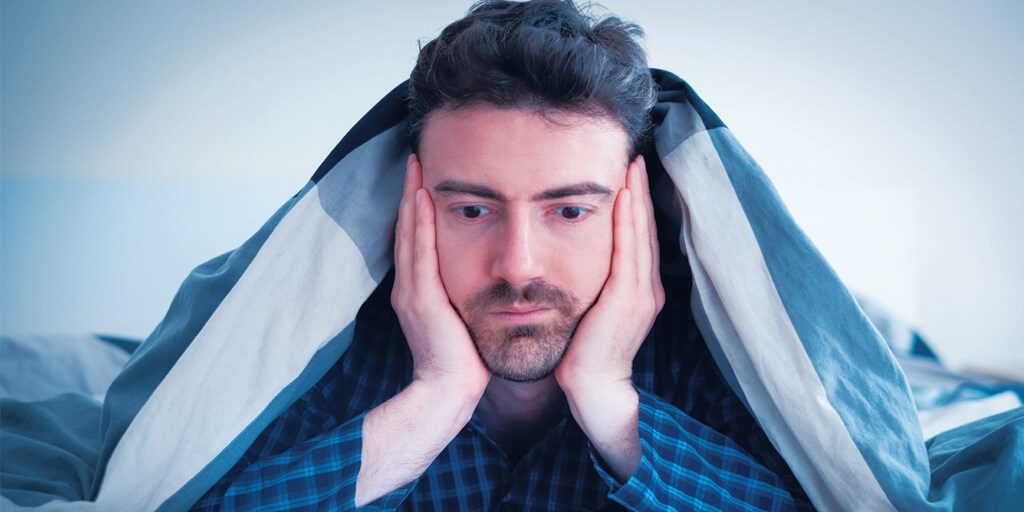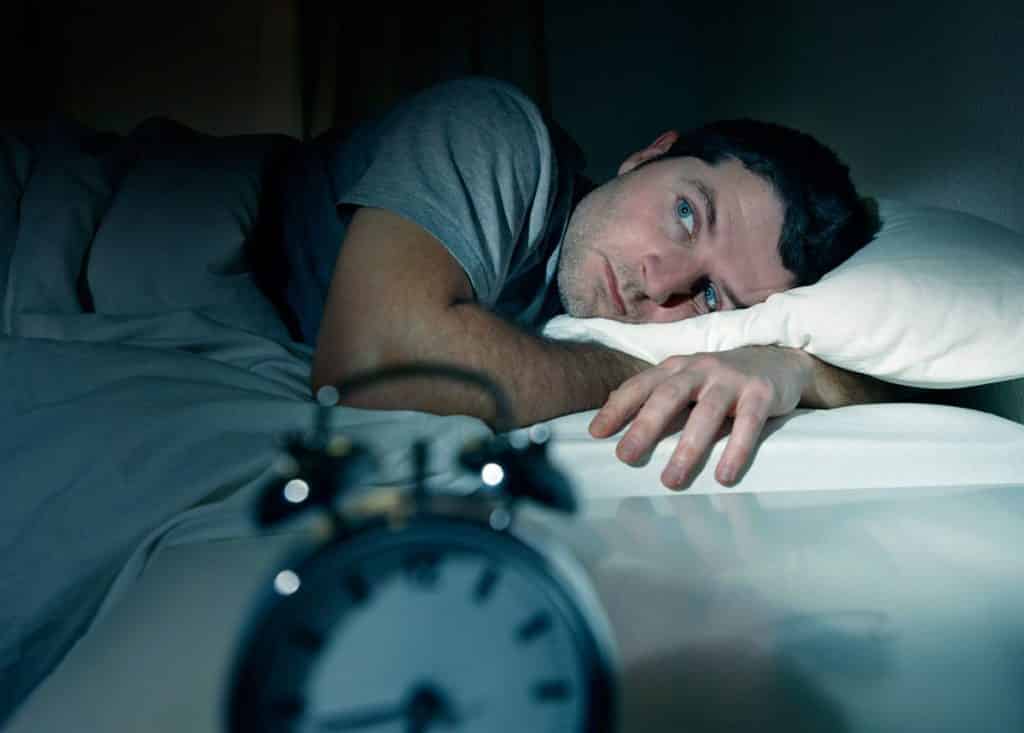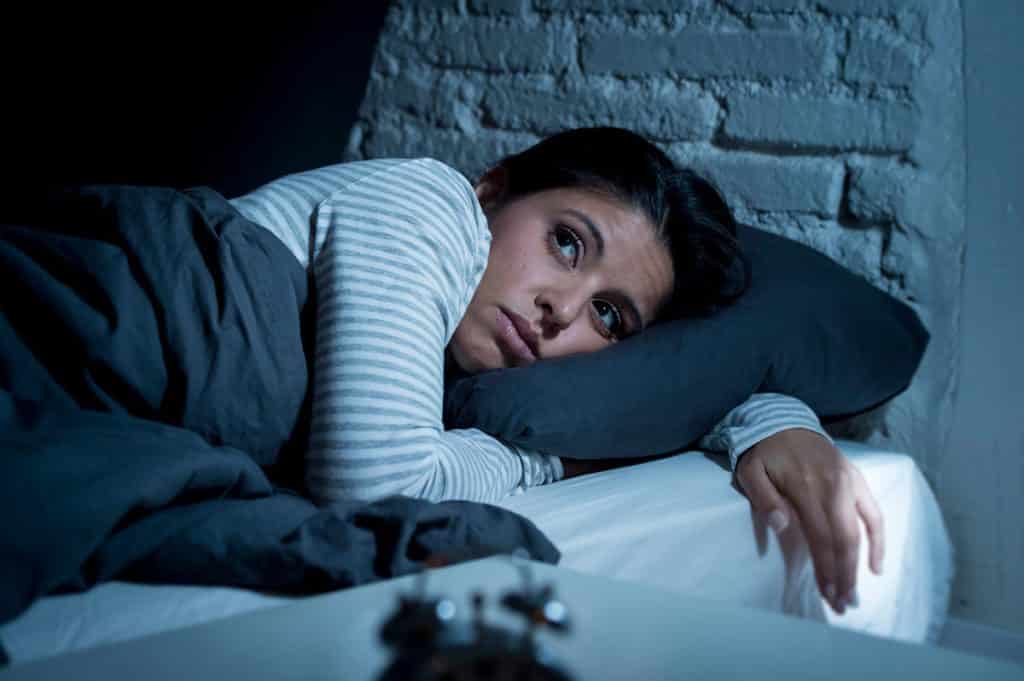
If you find yourself lying awake for hours at night trying to sleep, you are not alone. According to the Sleep Health Foundation’s 2016 sleep survey, 33–45% of Australian adults surveyed suffer from inadequate sleep — a problem that has been on the rise for Australians since 2010.
Naturally, no one is at their best after a night of disturbed slumber. It can affect your work, your relationships, your safety and your overall quality of life. Thankfully, it’s not too hard to identify the reasons as to why this might be occurring.
Here are some of the more common reasons as to why you might be waking up throughout the night or experience difficulty falling asleep in the first place.
Screen time before bed

Whether you’re watching Netflix, checking social media or working late, using an electronic device before bed can stimulate the mind and prevent you from falling into a deep sleep. Additionally, the screen impacts your brain’s normal functioning; blue light in particular delays melatonin production, which can disrupt your circadian rhythm, making it harder to fall — and stay — asleep.
According to the survey, 44% of Australian adults use the internet during the hour before bed almost every night; 26% of those adults also have sleep difficulties or impairments during the day. Furthermore, 52% of Australian adults watch television during the hour before bed.
It’s true that screen time before bed has become a common habit in Australia as well as the around the globe. If you are one of the 52%, try replacing this habit with a different activity like reading a physical book, taking a bath, stretching or talking with loved ones. If you simply must use your screen, consider using an app or setting that reduces the emittance of blue light.
Sleep disorders

It’s worthwhile considering that the reason you are waking up at night could be due to a more serious problem. The Sleep Health Foundation’s survey has found that 20% of adults suffer from chronic insomnia; 18% have restless leg syndrome and 8% have sleep apnoea.
The most common sleep disorder, insomnia, is defined as ‘a person regularly having trouble falling asleep, waking up before they would like to or waking up and failing to fall back asleep.’ Signs also include difficulty focusing and remembering things, depression and tiredness. If symptoms occur more than three nights per week for at least a month, it is considered chronic insomnia.
Another common disorder is Restless Leg Syndrome (RLS). This is a neurological condition in which you feel an uncomfortable sensation in your legs that is only temporarily relieved by moving or rubbing them. It often gets worse when trying to relax or sleep.
Obstructive Sleep Apnea (or OSA) is a condition in which the airway at the back of the throat gets blocked while you are sleeping. Signs often include loud snoring, pauses in breathing while you sleep, feeling tired in the day, waking up in the night and choking or gasping for air when you wake up.
If you have noticed any of these signs in yourself or your partner, it’s best to talk to your doctor to discuss treatment options. Learn more about other sleep disorders.
Cognitive or emotional issues

There are several cognitive or emotional issues that can contribute to interrupted sleep — and they’re more common than you might think. According to the sleep survey, 24% of Australian adults surveyed wake up at night because they are thinking about work; 28% awaken from stress and 24% have nightmares.
Kimberly Hershenson, Therapist and Licensed Master Social Worker, says, “Stress, anxiety, depression, and just plain worrying can influence your sleep habits. When your mind is racing, and negative thoughts are going on a loop, sleep becomes impossible!”
Here are Kimberly’s tips for relaxing your mind before bedtime:
- Make a daily gratitude list before bed by writing down 10 things for which you are grateful.
- Read affirmation statements every night. Ending your day with positivity helps reduce stress and anxiety.
- Have a night time routine where you wind down, whether it’s reading a book, having some decaf tea, putting on lotion, or stretching for 10 minutes. Doing something just for yourself every night is crucial to reducing mental stress.
- Start a nightly meditation practice. Meditation often makes people feel very relaxed and even tired which is not the greatest way to start your day. Meditating at night helps you wind down.
Practicing these exercises can help relieve any racing or anxious thoughts so you can get the proper rest you need. For more ideas, we have 9 tips to get a better quality sleep on our Sleep and Wellness Hub.
Other physical or health reasons

Other common causes of a sleepless night might include physical pain or other health issues. According to the survey, 25% of Australian adults reported waking up because of pain. While you’ll need to speak to your doctor about a diagnosis and treatment, you may need to consider the type of mattress you are using. We spend a third of our lives in bed, so the support and comfort we have during that time determines how well we sleep and how much pain we feel. Look for a mattress that will provide proper support. Furthermore, look for comfort layers that will help to relieve your pressure points.
If you need help figuring out which kind of mattress is right for you, try our online Mattress Selector tool.
Other physical and health reasons for interrupted rest may range from being thirsty at night, using the bathroom, or experiencing acid reflux and taking medications that disrupt sleep. As a general guideline, your last meal should be eaten several hours before bedtime to allow for digestion — avoid spicy or heavy foods. Additionally, avoid the consumption of liquids in the last hour before bed. It’s also best to avoid alcohol and caffeine in the evening. Be sure to speak with your doctor if you suspect medication may be causing your sleep problems.
Environmental factors

Lastly, 50% of survey respondents reported that they wake easily from noise while 27% are disturbed by light. To help prevent any environmental disturbances, consider using blackout curtains, ear plugs or an eye mask.
Find your reason and a solution for better sleep
If you are one of the many Australians getting an inadequate amount of rest, the good news is that there are simple steps you can try. Understanding the reason why you are waking up in the middle of the night will help you make the right changes to your health, lifestyle or sleep environment to give your body the deep, restorative sleep you need.

